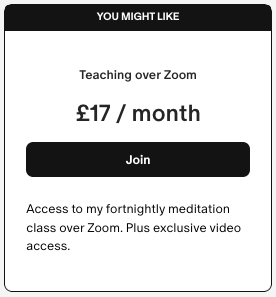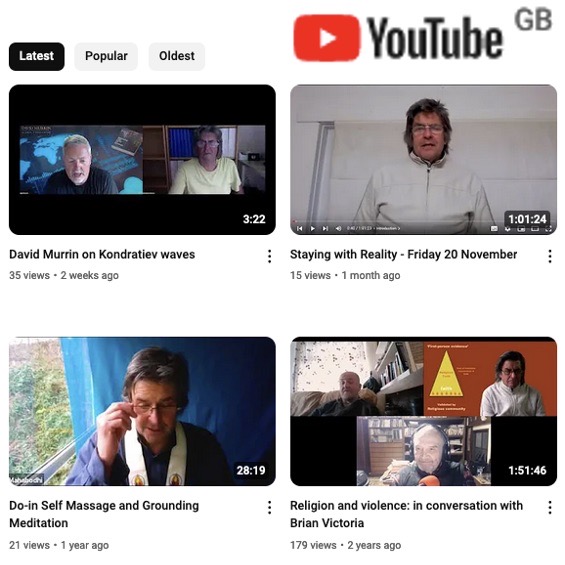The Twitter Files
Below is an excerpt from my forthcoming book… © Mahabodhi Burton 30 minute read This excerpt is from the Preface and goes into political developments over the last 15 months, since Elon Musk bought Twitter (now ‘X’) and invited independent journalists such as Bari Weiss, Matt Taibbi and Michael Shellenberger to share what they found there. Included is a section on the Trusted News Initiative, a global media monopoly instigated by large legacy media outlets such as the BBC. As a religious minister working within a western Buddhist tradition[1] and thus committed to the Buddha’s non-partisan teaching of the Middle Way, I find myself in a strange situation. We do indeed live in ‘interesting times.’ The Western world is enmeshed in the Culture Wars, seemingly chasing its tail/ fighting itself over ideology when under the surface essential resources are dwindling in a declining empire, causing people to fear for their future and that of their children and grandchildren. The world we inhabit is increasingly one in which people live their lives in information silos: only hearing the message designed to justify power to their particular group, and otherwise blithely getting on with life, oblivious to what is going on elsewhere. Scientia potentia est: ‘Knowledge is power’ as Francis Bacon said in 1597. Little did he know that this would play out by said knowledge acting as a reason for people to isolate themselves in their self-sustaining silos, fearing and balking from encounters with people holding different viewpoints. If a news source from across the cultural divide is encountered, it is typically regarded with suspicion and mistrust, even though it may be the only source of an alternative viewpoint. People obey the group’s social mores: adopting its lifestyle choices and assumptions in line with the others on their radar, which often remain unchallenged, whilst in the silo on the other side of the political spectrum, the exact same thing is happening. God forbid anyone should attempt to occupy a middle ground or offer a balanced opinion. Ricky Gervais: ‘Social media amplifies everything. If you’re mildly left-wing on Twitter you’re suddenly Trotsky. If you’re mildly conservative you’re Hitler, and if you’re centrist and you look at both arguments, you’re a coward and they both hate you.’[2] The two silos, as of 2022, consist of a) left-wing mainstream ‘The Trusted News Initiative (TNI), a self-described “industry partnership” launched by several of the world’s largest news outlets—including the BBC, The Associated Press (AP), Reuters, The Washington Post, Google, Microsoft, Facebook, and Twitter—in March of 2020.’[3] and b) conservative social media a more conservative-leaning silo/ camp that consists of independent YouTube content creators—a high...
Safetyism
Below is an excerpt from my forthcoming book… 37 minute read Chapter 2 The views expressed below on safeguarding are the personal views of the author and should not be assumed to represent the views of other members of the Triratna Buddhist Order or any organisation run by members of the Order. Despite our personal views, all order members undertake to abide by the Safeguarding policies of the Buddhist organisations in which we are active. Safetyism ‘Safety is obviously very important. But it is also a principle that, absent countervailing considerations, admits no limit to its expanding dominion. It tends to swallow everything before it. Once you indulge the vitalist perspective with some sympathy, your gaze is shifted and it becomes easier to see the ideological work that “safety” does in our society. Those who invoke safety enjoy a nearly nonrebuttable presumption of public-spiritedness, so a stated concern for safety becomes a curtain behind which various entities can collect rents from perfectly reasonable behavior. The trick is to formulate rules that are at odds with our natural reasonableness (for example, setting the speed limit below the speed dictated by the features of the road). That way you can guarantee a certain rate of infraction, and therefore revenue. If one cares about safety (and who doesn’t?), one does well to take a skeptical look at the safety-industrial complex, and its reliance on moral intimidation to pursue ends other than safety. To do this thoroughly, one must venture beyond the mental universe of risk reduction altogether. That universe takes its bearings from the least competent among us. This is an egalitarian principle that is entirely fitting in many settings, a touchstone of humane society that we rightly take pride in. (One of the people closest to me is significantly disabled, and I am often moved with gratitude for the accommodations our society makes for her.) But if left unchallenged, the pursuit of risk reduction tends to create a society based on an unrealistically low view of human capacities. Infantilization slips in, under cover of democratic ideals. I will insist, on the contrary, that democracy remains viable only if we are willing to extend to one another a presumption of individual competence. This is what social trust is built on. Together, they are the minimal endowments for a free, responsible, fully awake people.’ —Mathew Crawford[1] Safeguarding within a religious community I am a member of the Triratna Buddhist Order, which was founded in 1968 by an Englishman, Sangharakshita. Since that time, over 3,000 people have been ordained into the Order. Our ordination follows a tradition which dates back to time of...









 Users Today : 82
Users Today : 82 Users Yesterday : 23
Users Yesterday : 23 This Month : 540
This Month : 540 Total Users : 13967
Total Users : 13967
